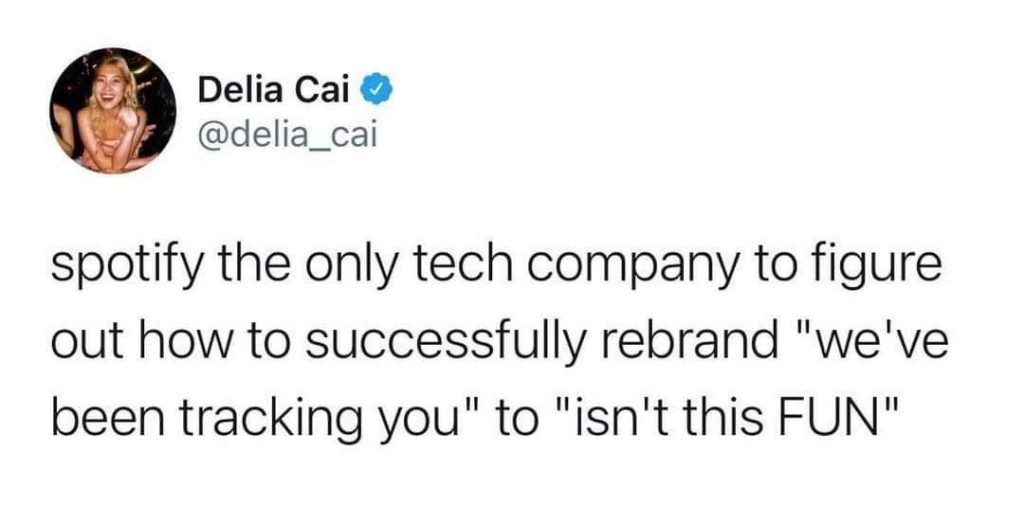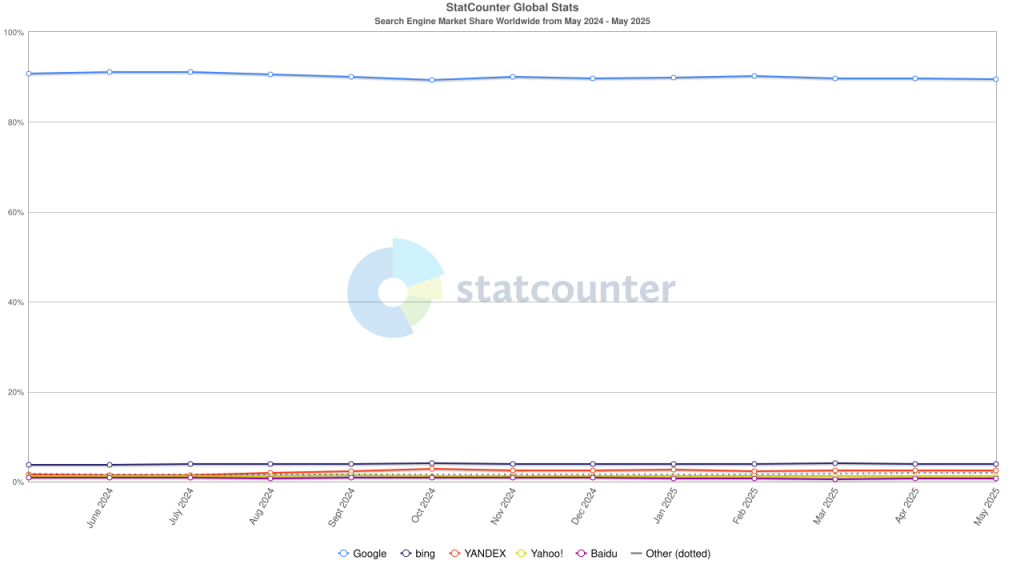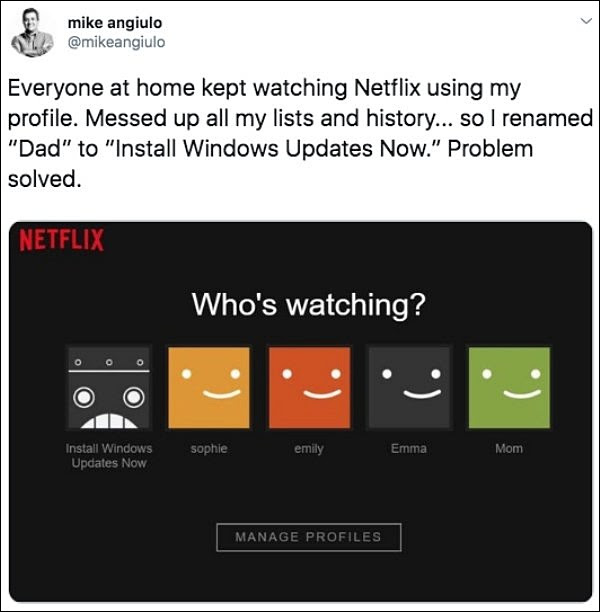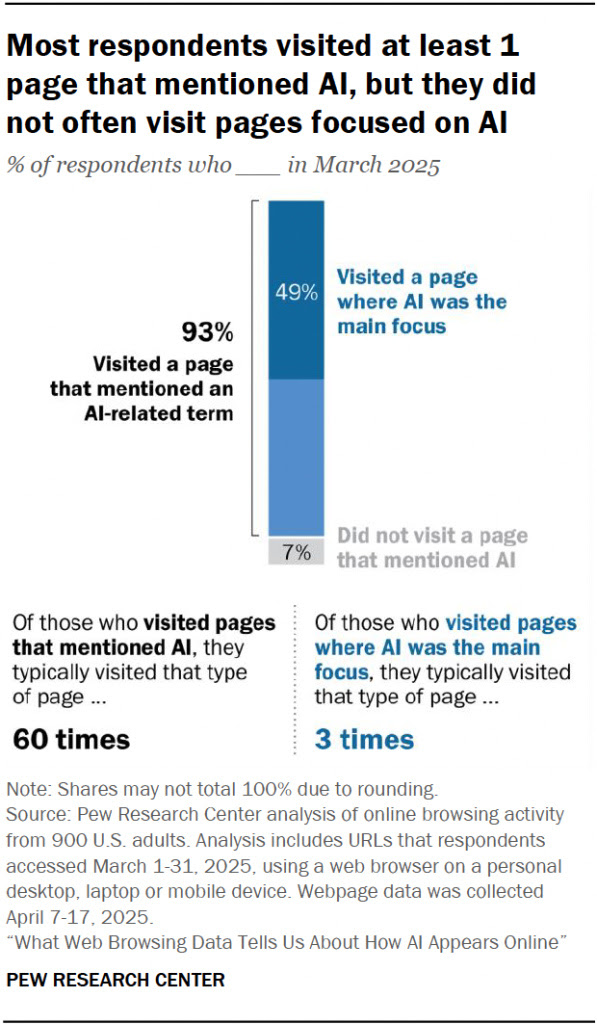Good Monday Morning!
It’s June 23rd. With extreme heat suffocating the East and Midwest this week, here is a great BBC article about how to stay cool and when to get help.
Today’s Spotlight is 857 words, just over 3 minutes to read.
3 Headlines to Know
Trumps FTC Pressures Ad Giants Over Political Content
The agency may approve the Omnicom–Interpublic merger only if the combined company agrees not to boycott platforms for political reasons, escalating the fed crackdown on brand safety practices.
Trump Delays TikTok Ban Again Despite Supreme Court Ruling
The president granted a third extension to ByteDance, keeping TikTok online even though the law banning it has taken effect and legal experts say he’s ignoring Congress.
Whatsapp Adds Ads
Meta is rolling out paid channels and Status ads on WhatsApp, expanding monetization while keeping personal chats off-limits to targeting, for now at least.
Perplexity Hits 780M Search Queries as AI Ambitions Grow
By The Numbers
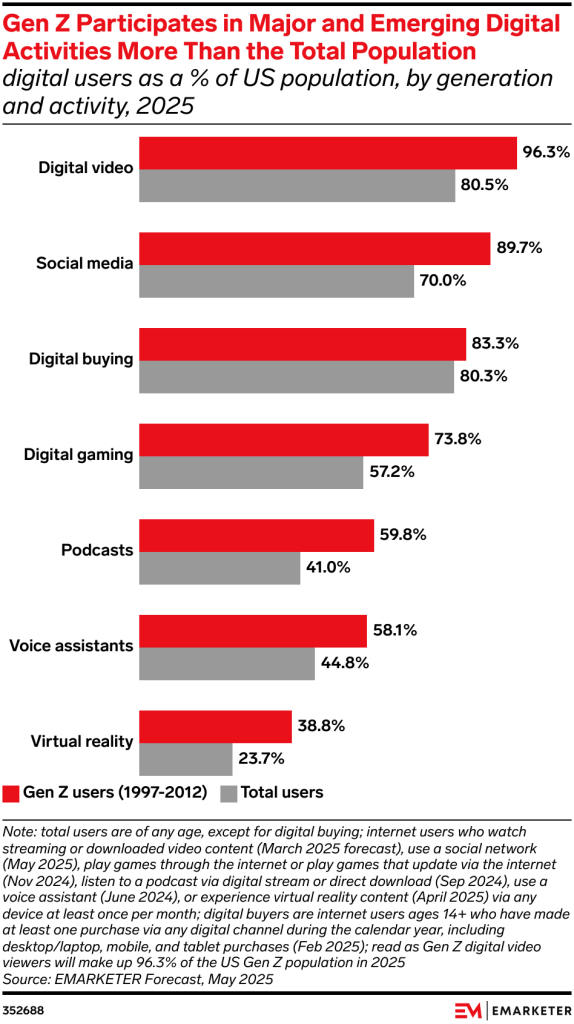
George’s Data Take
Gen Z, whose oldest members are now pushing 30, is just built different. You might be wowed by digital video at 96%, but scroll to the bottom.
These digital natives use VR 64% more than the average across all age group, and they’re closing in on 40% adoption. If they’re your target, that’s a wide-open channel just waiting.
The FAA Still Uses Windows 95 and Floppy Disks to Run Air Traffic Control
Running Your Business
There is a brand new FAA Request for Information to upgrade the system. Transportation Secretary Sean Duffy said the new system will not have “floppy disks or paper strips.”
Silver Beacon Behind The Scenes
The idea that our safety is dependent upon a 30-year-old system that was last supported in 2001 is the height of negligence. Sure, it’s a huge project, but it’s been decades. When you develop your next big project, be honest with yourself and the team about its true expected lifespan.
Ghosts and Slop Are Killing Music

Streaming platforms promised artists an audience but delivered pennies.
Now, artificial intelligence is deepening the crisis and pushing musicians further to the margins.
Spotify’s payment model already underpays artists by pooling user fees and distributing only fractions of a cent per stream. Its playlists, optimized for passive listeners, promote repetitive, uninspired music over innovation.
Like every model of its type, Spotify’s recommendation engine favors music that feels familiar and inoffensive, steering listeners toward more of the same and away from anything unexpected or genre bending.
Boo
AI-generated ghost artists fictional musicians producing cheap stock music, are an insidious tactic Spotify uses to lower costs even further. Genres like Lo Fi and ambient music are now flooded with computer generated filler, pushing working musicians out of listener awareness through endless customized playlists.
Spotify’s royalty system makes it easy to game. A recent bot-driven AI scam highlighted how fake accounts and automated streams siphon millions away from actual musicians. A man named Michael Smith generated thousands of AI tracks, flooded the platform, and profited from artificial streams, directly reducing earnings for artists.
AI Slop
Even Christmas carols are unsafe. AI generated Christmas tracks. sneak into compilations, offering listeners unsettling versions of classics. Artists find themselves competing against cheaply made artificial holiday slop, further diluting royalties and public recognition.
Artists fight back by turning to fan supported platforms like Patreon and Bandcamp, emphasizing direct connections and authenticity. Without significant pushback from listeners and industry leaders, though, musicians risk extinction in an AI saturated soundscape.
Disney NBCU Sue Midjourney For AI Copyright Theft
Practical AI
Hollywood’s biggest IP holders accuse the AI company of cloning their characters. Midjourney has recently begun rolling out text to video features, escalating concerns over infringement.
Spotify’s “Daylist” Refreshes Multiple Times a Day?
Protip
Just type “daylist” in the Spotify search bar to see yours.
Craigslist Ad Behind LA Protest Claims Was Just a Prank
Debunking Junk
A fake job post offering big money for “tough dudes” was part of a podcast stunt, not proof of paid protesters.
The Baltic Sea’s Northern Plights
Screening Room
AI Foot Scanner Spots Trouble Early
Science Fiction World
A new in-home device predicts heart failure hospitalizations by scanning fluid buildup in your feet, giving doctors a 13-day head start to act.
Smart Seatbelt Learns Your Body to Boost Safety
Tech For Good
Volvo’s EX60 introduces a sensor-packed seat belt that adjusts to your size and driving conditions while improving over time through software updates.
Wordle’s Not Alone in the Grid Anymore
Coffee Break
From Waffle to Redactle, a whole genre of mind-bending word games has spun off from your daily five-letter fix. Here are 14 of them.
Sign of the Times
